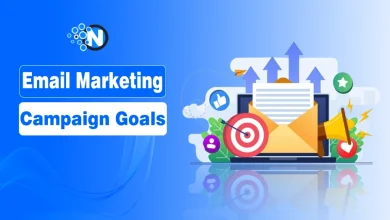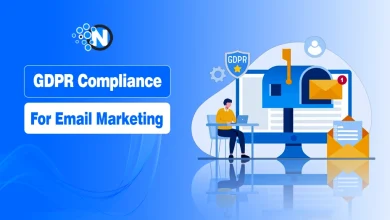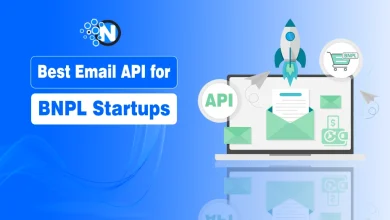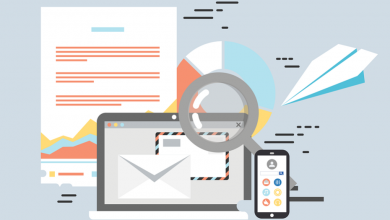Top 10 Best Email Marketing Companies in 2025

You know that feeling when you write a message, press send, and then…nothing happens? No opens, no clicks, just silence. That’s the trap many email marketers fall into when their tools can’t keep up. But imagine a platform that boosts deliverability, automates complex campaigns, and makes your audience feel like you’re speaking directly to them.
In 2025, the best email marketing companies are doing exactly that. I have tested, compared, and researched the leaders in this space. In this guide, I have provided the details about the 10 best email marketing platforms that can help you achieve your goals.
What are Email Marketing Companies?
Email marketing companies are service providers that specialize in helping businesses plan, execute, and optimize their email marketing campaigns.
As compared to platforms that only provide tools, these companies often offer full-service solutions, including strategy development, content creation, list management, automation setup, and performance tracking. They use data-driven insights to personalize campaigns, improve deliverability, and maximize customer engagement.
When you partner with an email marketing company, you will gain access to expertise and resources that streamline communication, nurture leads, and drive conversions, which makes them a valuable partner for achieving long-term growth and brand visibility.
What Makes an Email Marketing Company “Best”?
Before moving ahead, let me lay out what criteria I used to pick these best email marketing companies. You deserve to know why one platform ranks higher than another. The key factors I considered:
- Deliverability & sender reputation: Even the best email is useless if it lands in spam. I looked for platforms with strong domain authentication tools, like SPF, DKIM, DMARC, feedback loops, and inbox placement monitoring.
- Automation and personalization: The ability to send behavior-driven emails, dynamic content, A/B tests, send-time optimization, and workflow triggers.
- Analytics and reporting: Metrics beyond open rate and click-through: conversion tracking, cohort analysis, heatmaps, revenue attribution.
- Ease of use and design tools: Drag-and-drop builders, email templates, mobile responsiveness, spam testing.
- Integrations & scalability: How well the platform plays with CRMs, eCommerce tools, APIs, and whether it can grow with you.
- Pricing & free plan viability: Especially for small/medium users, the cost per email or per contact at scale matters a lot.
Top 10 Best Email Marketing Companies in 2025
While considering the above mentioned factors, below are the 10 best email marketing companies I believe stand out in 2025.

1. Brevo (formerly Sendinblue)
Brevo has made a strong leap in 2025 by combining email marketing, SMS, chat, and CRM into one cohesive platform. It’s ideal if you want an all-in-one solution where your messaging, contacts, and customer journeys live together. They don’t charge based on the number of contacts (in many plans), but rather on monthly sends, which can be more economical for certain use cases.
Brevo also includes complete automation workflows, landing pages, and advanced segmentation. Their deliverability tools are solid, and their pricing is competitive for small to medium businesses. It’s become a go-to especially where flexibility and integration matter.
Key Features of Brevo
- Email + SMS + chat + CRM in one suite
- Flexible pricing based on sends instead of just contacts
- Visual automation workflows
- Advanced segmentation & personalization
- Landing pages, forms, and templated email designs

2. MailerLite
MailerLite consistently ranks among the favorites for small to mid-size users because it keeps things simple without sacrificing power. Its free plan is generous, and its paid plans are among the most affordable when you scale.
You get a solid drag-and-drop editor, built-in automation, pop-ups and forms, landing pages, and subscriber tagging. The user interface is clean, and the learning curve is gentle, which is ideal if you are newer to email marketing but want room to grow.
Key Features of MailerLite
- Clean drag-and-drop email builder
- Automation workflows & visual logic
- Pop-ups, forms, and landing pages
- Subscriber tagging and segmentation
- Affordable pricing and generous free tier

3. HubSpot Email Marketing (HubSpot Marketing Hub)
HubSpot’s strength lies in connecting email marketing to a complete CRM and inbound platform. If your marketing, sales, and service teams use HubSpot, the email component fits seamlessly into the larger toolset.
Their email tools include personalization based on contact properties, behavior-based triggers, and deep analytics. Because it’s part of a full suite, you can turn an email contact into a CRM lead, see attribution, run multi-channel campaigns, and more. It’s premium-priced, but if you rely heavily on a unified marketing ecosystem, it pays off.
Key Features of HubSpot Email Marketing
- Tight CRM integration & attribution
- Automated workflows tied to contact behavior
- Personalization using robust contact properties
- Drag-and-drop email builder and responsive templates
- Analytics, reporting, and campaign attribution

4. Klaviyo
Klaviyo stands out for eCommerce and data-driven businesses. It excels in sending behavior-triggered emails like abandoned cart, post-purchase flows, product recommendations, and segmented email series.
What makes Klaviyo powerful is its deep integration with the best eCommerce platforms and its ability to ingest user behavior data to refine campaigns. If you are running a store, Klaviyo gives you precise control and insight to drive revenue from email.
Key Features of Klaviyo
- Behavior-based email flows (e.g. cart abandonment)
- Deep eCommerce integrations and data analytics
- Segmentation based on user actions and lifetime value
- Predictive analytics & AI-driven recommendations
- High deliverability and domain reputation tools

5. ActiveCampaign
ActiveCampaign blends email marketing with marketing automation and CRM in a very strong way. It is known for powerful automation “recipes” and conditional logic, making it ideal for more advanced users who want full control over campaign paths.
You can trigger emails based on virtually any event or subscriber behavior, loop in conditional splits, perform dynamic content insertion, and tie everything to sales pipelines. For marketers who want to scale complexity and personalization, ActiveCampaign is a go-to.
Key Features of ActiveCampaign
- Advanced automation with conditional logic
- CRM and sales pipeline integration
- Dynamic content and personalization
- Strong event & behavior triggers
- Detailed analytics & reporting

6. GetResponse
GetResponse is a mature platform that tries to cover all bases: email marketing, webinar hosting, automation, landing pages, and more. It’s suitable for users who want one suite to manage multiple marketing campaigns.
One of its differentiators is the webinar tool, which is built in and ties directly to your email campaigns. You will also find good automation workflows, responsive templates, and integrations with eCommerce tools.
Key Features of GetResponse
- Email marketing + webinar integration
- Automation workflows and triggers
- Landing pages and forms builder
- Responsive email templates
- Analytics, A/B testing, and integrations

7. Campaign Monitor
Campaign Monitor is more design-forward. It’s popular when aesthetics matter, agencies, designers, and brands that want polished emails often turn to it. Its template system is advanced, and its builder is user-friendly.
It may not be as advanced in deep automation as others on this list, but for storytelling, newsletters, and brand-focused campaigns, it shines. Its segmentation and personalization features are solid, and it integrates well with other tools.
Key Features of Campaign Monitor
- Beautiful, responsive templates
- Intuitive email builder
- Personalization and segmentation tools
- Analytics and metrics dashboards
- Integrations with major CRMs, eCommerce, and apps

8. Sender
Sender is often praised for its simplicity, affordability, and generous free plan. It’s a good option for small businesses, content creators, or anyone who needs to get started without huge costs.
While it may not have all the bells and whistles of enterprise tools, it delivers core email marketing features: drag-and-drop editor, automation, segmentation, and analytics. Over time, you can scale without jumping to a completely new system.
Key Features of Sender
- Simple, clean interface
- Automation workflows and triggers
- Segmentation by behavior or properties
- Templates and email design tools
- Cost-effective pricing and a solid free tier

9. Zoho Campaigns
Zoho is part of a larger ecosystem (Zoho CRM, Zoho Desk, etc.), and Zoho Campaigns is their email marketing arm. If you are already in the Zoho universe, this platform lets you align email with your other business data.
It provides email templates, automated campaigns, A/B testing, and list management. While it might not beat specialized tools in deep automation or eCommerce triggers, for many businesses its integration value and pricing make it a smart pick.
Key Features of Zoho Campaigns
- Seamless integration with Zoho CRM & suite
- Email templates and drag-and-drop editor
- Automation workflows and campaigns
- A/B testing and analytics
- List management, segmentation, and tagging

10. Drip
Drip has carved a niche for itself as a “CRM for eCommerce marketers.” It emphasizes personalization, behavior tracking, and lifecycle campaigns. If your goal is turning email into revenue, Drip helps you build those flows.
Drip is designed to help convert customers, not just send newsletters. You will see features focused on tracking purchases, sending follow-up emails, segmenting based on behavior, and optimizing for lifetime value.
Key Features of Drip
- Behavior-based email automation & flows
- ECommerce analytics and purchase tracking
- Segmentation and dynamic content
- Multi-step workflows and triggers
- Conversion attribution & revenue tracking

How to Choose the Right Email Marketing Company?
Having a list is good, but the better question is: which one fits you? Think about:
- Your goals: Are you doing eCommerce? Then Klaviyo or Drip may be better. If you want a unified CRM + email, HubSpot or Brevo shine.
- Your budget and scale: Platforms with premium features can get expensive as your list grows.
- Your ecosystem: If you already use Shopify, Zoho, or HubSpot, prefer a tool that integrates seamlessly.
- Ease vs depth: Some tools favor “set-it-and-forget-it” simplicity, others offer deep control for power users.
- Testing & trial: Use their free plans or trials to test deliverability, email construction, and support responsiveness.
Final Thoughts
These are the details about the top 10 best email marketing companies in 2025.
Email marketing is not dead. The fact is, it is evolving faster than ever. The platforms I have shared represent what’s possible in 2025: advanced automation, better deliverability, and smarter analytics.
Whether you are building a newsletter, scaling a store, or aligning your marketing and sales teams, one of these ten tools will suit your needs. The real win comes when your messages reach the inbox, speak to your users, and drive real actions.
Try a few that match your style, test carefully, and let your emails start doing the heavy lifting.
People Also Ask
An email marketing company provides services to create, manage, and optimize email campaigns for businesses.
HubSpot remains one of the most popular email marketing companies in 2025.
Hiring one saves time, ensures professional strategies, and improves campaign results.
Yes, most provide automation tools for scheduling, targeting, and performance tracking.




